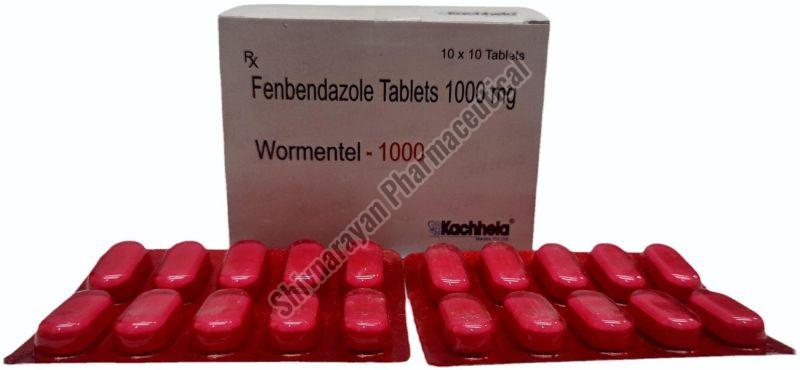fenbendazole capsules: Everything You Need to Know Before Use
Recognizing the Benefits and Uses of Fenbendazole in Vet Medicine
Fenbendazole has established itself as a vital anthelmintic in veterinary medicine. Its capacity to target various parasitic infections makes it a valuable device for vets. The medication's system disrupts essential cellular processes in parasites, leading to effective treatment outcomes. Nevertheless, its security account ranges types, requiring mindful factor to consider in its use. Comprehending these characteristics can drop light on fenbendazole's wider implications in vet care and recurring research right into its possible beyond typical applications
Mechanism of Action of Fenbendazole

Typical Parasitical Infections Treated With Fenbendazole
A selection of parasitical infections are efficiently treated with fenbendazole, making it a versatile alternative in veterinary medication. This anthelmintic agent is specifically effective versus nematodes, including roundworms and hookworms, which generally impact canines and cats. It is likewise utilized for the treatment of cestodes, such as tapeworms, giving a wide spectrum of activity against both types of digestive parasites. In addition, fenbendazole is helpful in handling infections brought on by protozoa, particularly Giardia, which can bring about intestinal distress in animals. Its efficiency reaches dealing with particular lungworms in pooches and felines, addressing breathing health issues connected to these bloodsuckers. Overall, fenbendazole's capacity to target numerous parasitical species makes it a useful device in vet technique, guaranteeing the health and health of pet dogs impacted by these typical infections.
Safety and security and Effectiveness in Different Animal Types
The safety and security and effectiveness of fenbendazole differ amongst various pet types, underscoring the value of species-specific considerations in vet medication. In dogs, fenbendazole is generally well-tolerated and reliable versus a variety of stomach parasites, consisting of roundworms and hookworms. For felines, nonetheless, its usage is much less common and may require cautious application due to prospective negative responses.
In livestock, such as cattle and sheep, fenbendazole shows efficiency versus various endoparasites, adding to enhanced wellness and performance. The pharmacokinetics and prospective side effects can vary significantly between species, demanding cautious assessment by vets.
Equines additionally respond favorably to fenbendazole, specifically for dealing with strongyles and ascarids, though dosage and management routes must be tailored to their unique physiology. Understanding these differences is crucial for maximizing therapy results and making certain animal welfare across varied types.
Administration and Dose Standards
Proper administration and dose find more information standards are important for optimizing the therapeutic effects of fenbendazole while lessening possible side effects. The dosage usually varies depending on click site the types being dealt with, the particular problem, and the formulation of fenbendazole utilized. fenbendazole 222. For dogs and felines, a typical dosage is 50 mg/kg body weight, carried out as soon as daily for 3 consecutive days, yet vets may change this based on private health and wellness evaluations
It is necessary to administer fenbendazole with food to improve absorption and minimize gastrointestinal upset. The medication is available in different kinds, including granules and paste, permitting versatile management alternatives. Monitoring the animal's feedback throughout and after therapy is suggested to validate effectiveness and safety and security. Furthermore, veterinary assistance is vital to establish the appropriate period of therapy based on the type of parasitic infection being addressed, assuring ideal end results for the pet's wellness.
Future Viewpoints and Research Study on Fenbendazole
Research on fenbendazole continues to evolve, concentrating on its potential applications beyond conventional antiparasitic usages. Recent researches have actually discovered its effectiveness in dealing with different forms of cancer, specifically in veterinary oncology. Preliminary data recommend that fenbendazole may hinder the growth of tumor cells and enhance the results of various other chemotherapeutic representatives.
Researchers are examining its role in handling gastrointestinal conditions in animals, highlighting its anti-inflammatory residential or commercial properties. The flexibility of fenbendazole for various types raises inquiries concerning its safety accounts and ideal application programs in diverse populations.
As passion expands, there is a requirement for thorough medical tests to develop evidence-based guidelines for these novel applications. Future research study may likewise explore the systems behind fenbendazole's effects, possibly leading the means for ingenious healing techniques in veterinary medication. The ongoing expedition of fenbendazole could substantially boost treatment choices for different vet problems.

Often Asked Questions
Is Fenbendazole Safe for Pregnant Animals?
The security click for info of fenbendazole for pregnant pets stays unsure. While some researches recommend minimal threat, vets generally recommend caution and frequently discourage its use while pregnant unless the advantages clearly exceed possible risks.
Can Fenbendazole Be Utilized in Animals?
Fenbendazole is typically utilized in livestock to deal with numerous parasitic infections. fenbendazole capsules. Its efficacy against intestinal worms makes it a beneficial anthelmintic, adding to enhanced health and wellness and efficiency in pets increased for food and fiber
What Are the Side Effects of Fenbendazole?

The side impacts of fenbendazole might include stomach disruptions, lethargy, and allergies. In uncommon cases, a lot more severe responses can happen, requiring careful monitoring and consultation with a vet throughout therapy.
Just How Does Fenbendazole Contrast to Various Other Dewormers?
Fenbendazole provides broad-spectrum effectiveness versus numerous bloodsuckers, typically contrasting positively to various other dewormers. Its distinct device targets different life stages, making it effective, while usually providing a favorable safety and security profile compared to choices available on the marketplace.
Can Fenbendazole Be Made Use Of for Treating Cancer Cells in Pets?
The capacity of fenbendazole in treating cancer in pets has gathered interest. Initial researches recommend it may inhibit cancer cell growth, but additionally study is necessary to verify its efficacy and safety in vet oncology.